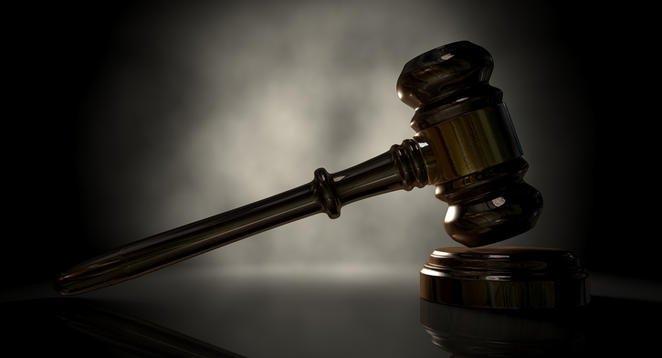We spoke with a French lawyer specialised in auctions; a last-resort procedure to solve debts. It’s also a procedure with some interesting particularities.
Picture yourself in a court room. Then, in front of the judge, a clerk comes and diplays three little candles. He then strikes a match and is about to light the first candle...
This is the way auctions were made in French courts until quite recently. 'We called that vente à la bougie, French for candle selling,' explains Thomas Baudry (EJ France), a specialist in judicially requested auctions. 'When, for example, the house of someone unable to pay their debts was sold in auction to reimburse all that they owed, the auction would be made with these three candles. When someone offered a price and no one bid higher, the clerk would light up the first candle. When it was entirely burnt, he lit the second one. Then, the third one. When the three candles were dead, the bidder won the auction.' A few years ago, this pittoresque method was replaced with an electronic timer.
Thomas became an expert in this field when he entered the Levacher lawfirm. 'The father of my current associate, Jean-Pierre Levacher, was already an expert in auctions. Now that Jean-Pierre's daughter works with us as well, it makes the firm a three generations business.'
The theory is that when your debtors cannot pay you, you can order their house to be auctioned to recover your money. In practice however, it is much more complicated. 'You cannot ask for such an auction so easily. You need to go through several legal steps before the auction can be ordered. There is also a need to survey the building and produce a report about the exact condition of the house: is it in good shape, is it in conformity with the latest rules in terms of ecology or safety, how is the ground going with it, are there any shared spaces, etc. This allows the potential bidders to read your report and know exactly what they would be bidding for. There are also rules to make sure that bidders are serious about the auction, that their intention is really to be potential buyers. For example, they need to make a deposit of ten percent of the minimum price of the house.'
Thomas has also been hired by people who were at risk of seeing their house auctioned. 'We always try to avoid this solution, which often has difficult consequences for the debtors. At first, I try to see if they can pay their debts in another way. If not, then I try to persuade them to sell their house at a better price than what it would be auctioned for, so they can have money left after they paid what they owned. Some people end up in this situation after months, even years of denial of their financial difficulties, but it may still be possible to guide them towards a better exit.'
Other cases do not imply debts, but safety reasons. 'We had this case of a house that was adjacent to another one. When the owner died, the house went to a large number of heirs who could not agree on what to do with it. While they were fighting over it, the house remained empty and started to become uninhabitable. Here in Normandy, we are in a very humid region, and mould can have a devastating effect on a house. Because they were living in an ajdacent house, the neighbours worried that the mould and infection of the abandoned house would spread to their own property. After some legal procedures, we were able to have the house put on auction. Then the neighbours actually considered acquiring it through a low bid so they could extent their own house.' So in the end, auctions made through Thomas are not always due to personal bankrupcies.


